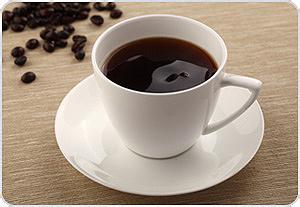Five signs of caffeine overintake
How much caffeine is an overdose? The American Dietetic Association recommends no more than 300 milligrams of caffeine a day, about two to three cups of 8 ounces of coffee. Even if you are not a coffee lover, you may unwittingly consume caffeine from other sources, such as nutritional supplements for sports drinks, or even caffeine in some drugs.
Although the effects of caffeine vary from person to person, the following five signs may indicate that you are consuming too much caffeine.

1. Yawned all afternoon
If you can't resist it without drinking Diet Coke for a day, you may be addicted to caffeine. If you drink a few cans of Diet Coke every day, you will feel that you are in high spirits immediately after drinking, and then you will feel depressed. In addition to the effect on mood, the acidity of Coke can also damage enamel. If you can, limit yourself to one can of Coke a day, which is enough to avoid bumping into the wall because of drowsiness. After drinking Coke, remember to brush your teeth to reduce the erosion of enamel.
2. Urinate orange
Urination is dark yellow or orange and is a warning sign of dehydration. Coffee is a diuretic that causes you to lose too much body fluid when you urinate, which can lead to dehydration. Caffeine usually does not cause dehydration, and it will be a problem if you consume about 500 milligrams of caffeine. So, if you drink one or two cups of coffee every day, you should be safe.
3. Can't sleep
Caffeine takes about 45 minutes to an hour to be absorbed, and it takes a long half-life, which means it stays in your body for several hours, which may affect your sleep cycle. If you need more than 30 minutes to fall asleep at night, try a non-caffeinated drink after 12:00 in the evening to see if it helps you get a more comfortable sleep. It is important to note that decaf coffee and decaf tea are not caffeine-free, and they contain about 1/3 caffeine compared to undecaf drinks.
4. Feel anxious
Sweaty palms, rapid heartbeat, restlessness, feeling nervous. All this suggests that you are eating too much caffeine. Caffeine increases stress and depression because it interferes with the brain's calming neurotransmitter adenosine. Caffeine can also be used as a stimulant, triggering more stress hormones such as adrenaline, which speeds up your heart rate and makes you feel more anxious.
5. Heartburn
The valve at the end of the esophagus is called the sphincter at the bottom of the esophagus and normally closes after the food enters the stomach. When the valve is weak and incompletely closed, it can cause acid reflux, cause esophageal burning, and you will feel a burning sensation in your chest. If this happens to you, caffeine is likely to be the culprit. Because caffeine relaxes the esophageal sphincter, it allows acid to enter the throat, causing a burning sensation.
Important Notice :
前街咖啡 FrontStreet Coffee has moved to new addredd:
FrontStreet Coffee Address: 315,Donghua East Road,GuangZhou
Tel:020 38364473
- Prev

How else can I drink coffee?
* twice-baked almond-flavored crispy cake, a traditional Italian biscuit, specially used for coffee dipped with coffee * Italians often like to drink lemon in Espresso coffee * in Africa and the Middle East, locals often add spices to coffee * Moroccans like to add pepper to their coffee * Ethiopians like to add a pinch of salt to their coffee * Mexicans
- Next

What exactly is "black coffee"?
Black coffee (cafe noir) black coffee is unmodified coffee, black coffee brings the original feeling of tasting coffee. Black coffee combines the characteristics of sweet and bitter coffee, it is primitive and rugged, profound and intriguing. However, we always know too little about black coffee, and the distance makes it even more mysterious. Actually, the black coffee is there.
Related
- Beginners will see the "Coffee pull flower" guide!
- What is the difference between ice blog purified milk and ordinary milk coffee?
- Why is the Philippines the largest producer of crops in Liberia?
- For coffee extraction, should the fine powder be retained?
- How does extracted espresso fill pressed powder? How much strength does it take to press the powder?
- How to make jasmine cold extract coffee? Is the jasmine + latte good?
- Will this little toy really make the coffee taste better? How does Lily Drip affect coffee extraction?
- Will the action of slapping the filter cup also affect coffee extraction?
- What's the difference between powder-to-water ratio and powder-to-liquid ratio?
- What is the Ethiopian local species? What does it have to do with Heirloom native species?

